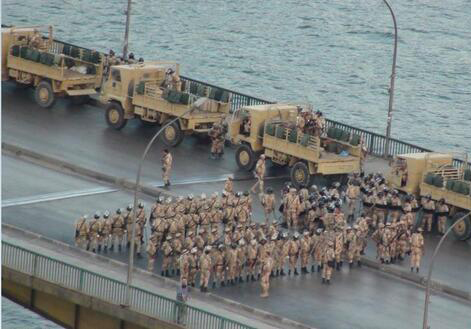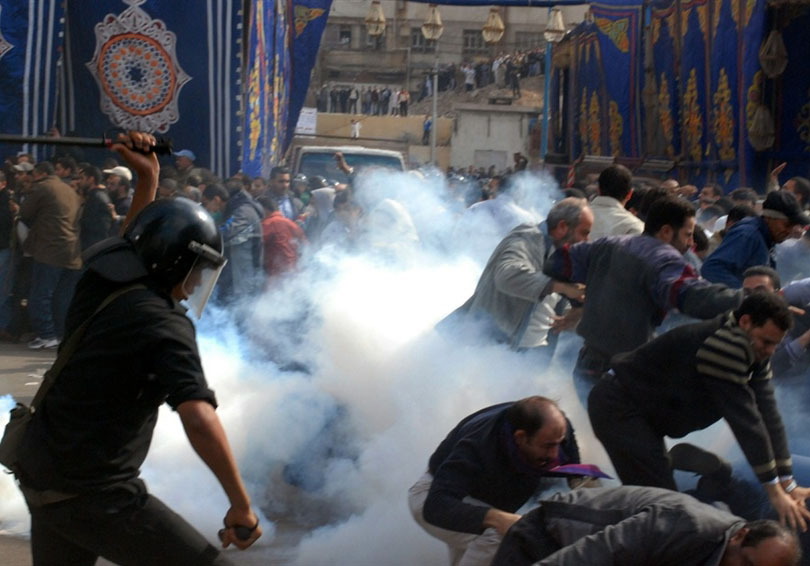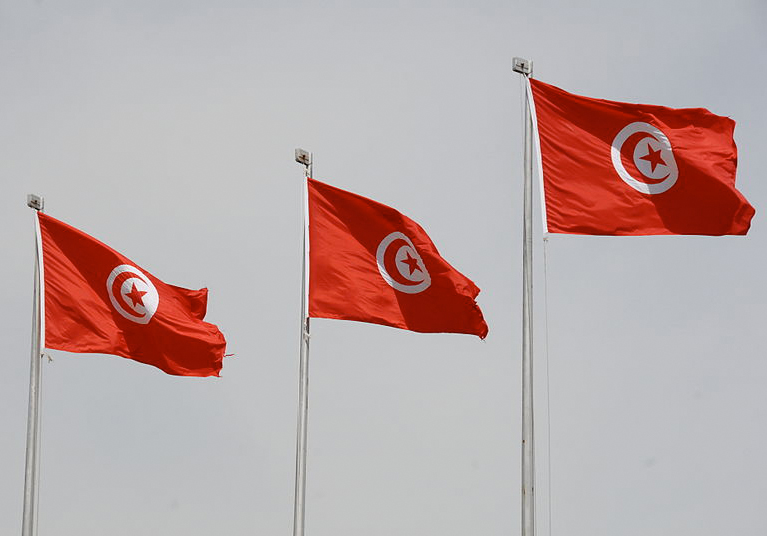
Egypt: investigate and address human rights abuses following the ouster of President Morsi
The ICJ calls on Egyptian authorities to conduct a thorough, effective, independent and impartial investigation into the unlawful and excessive use of force by security and armed forces, in particular during the dispersal of the Rabaa Al-Adawyia and Annahda pro-Morsi sit-ins on 14 August.
The statement comes as the ICJ concluded a high-level mission on 29 August to assess the human rights and rule of law situation in Egypt following the ouster of President Mohamed Morsi by the armed forces.
The use of live ammunition to disperse the sit-ins and against pro-Morsi protesters has resulted in the deaths of more than 1000 individuals, most of which appear to amount to unlawful killings.
The investigation should also examine violent attacks by some pro-Morsi supporters, including the use of firearms, against security officers, police stations, and bystanders, and attacks on religious minorities, in particular Christians, their churches, buildings, and homes.
“The Egyptian authorities should investigate the unlawful use of live ammunition against protesters with a view to holding the perpetrators to account, providing remedy and reparation to the victims, and ending the impunity the security and armed forces have enjoyed over human rights abuses,” said ICJ Commissioner Kalthoum Kennou. “In policing demonstrations, security must act to safeguard the right to life, in particular by ensuring that the decision to use lethal firearms is made only when strictly unavoidable in order to protect life.”
The ICJ is also concerned that following the crackdown, thousands of people were arrested under conditions that violate due process guarantees, in particular the rights to have access to a lawyer and to family members.
Hundreds are also reportedly missing and the ICJ fears many of them have been subjected to enforced disappearance.
Hearings for renewing pre-trial detentions orders are conducted in prisons and, as a result of the large number of detainees, most are either not represented by legal counsel, or are not able to have access to and to consult with their lawyers. Many of the detainees are being held arbitrarily under administrative detention, the ICJ further notes.
“The Egyptian authorities must ensure the rights of those arrested to liberty, security of person, to have access to lawyers and family members and to challenge the lawfulness of their detention, ” said ICJ Commissioner Shawan Jabarin ” the Egyptian authorities must fully communicate the list of all the detainees, their places of detentions and the fate and whereabouts of the hundreds who are reportedly missing. They must also comply with their legal obligations under international law and ensure that no one is subjected to enforced disappearance.”
The Office of the Public Prosecutor has charged thousands of individuals who were arrested following the ouster of president Morsi and the dispersal of the sit-ins, including with “ attempted murder”, “opposing authorities”, “attacking law enforcement officials”, “causing disorder”, “blocking roads” and “throwing Molotov cocktails at the police”.
The office also charged President Morsi and his advisers, including leaders of the Muslim Brotherhood, with, among other charges, “inciting followers to commit premeditated murder, use of force, use of firearms and illegal attacks on authorities.”
Moreover, seventy-five judges who called for the reinstatement of former President Morsi have been investigated by an investigating judge, appointed by the Minster of Justice, for “backing a particular political party and deviating from judicial traditions and its values of neutrality, impartiality and non-partisanship.”
The ICJ notes, however, that neither the Office of the Public Prosecutor nor the Minister of Justice have so far investigated, ordered the investigation, or brought criminal action for the unlawful killings of protesters by armed and security forces following the ouster of President Morsi.
In meetings with the ICJ delegation, state officials, including the Minister of Justice, argued that the use of live ammunition and lethal force to disperse sit-ins was legitimate and in line with both national and international standards.
“In times of crisis, judges and prosecutors must safeguard and uphold the rule of law, not curtail the enjoyment of fundamental rights and freedoms,” said Said Benarbia, ICJ Senior Legal Advisor for the Middle East & North Africa Programme.
“The Egyptian authorities must therefore ensure that the Office of the Public Prosecutor and courts are not politicized or used as a means to crackdown on political opponents and protesters, or to shield armed and security officials responsible of human rights abuses from accountability,” Benarbia added.
Contact:
Said Benarbia, ICJ Senior Legal Adviser of the Middle East and North Africa Programme, tel: 41 22 979 38 17, e-mail: said.benarbia(a)icj.org
Additional information:
The ICJ delegation was led by Justice Kalthoum Kennou, judge at the Tunisian Cassation Court and ICJ Commissioner, and Mr. Shawan Jabarin, ICJ Commissioner and General Director of Al-Haq, an ICJ affiliate in the occupied Palestinian territories. The delegation met with Minister of Justice Adel Abdelhamed Abdullah, Minister of Transitional Justice and National Reconciliation Amin El Mahdi, members of the judiciary, including President of the Judges Club Ahmed El Zend, lawyers, civil society, and families of victims of human rights violations after the dismissal of former President Mohamed Morsi.






